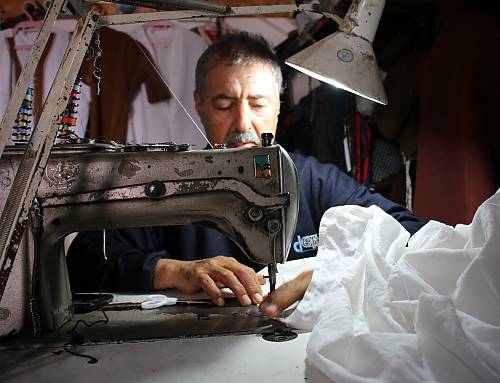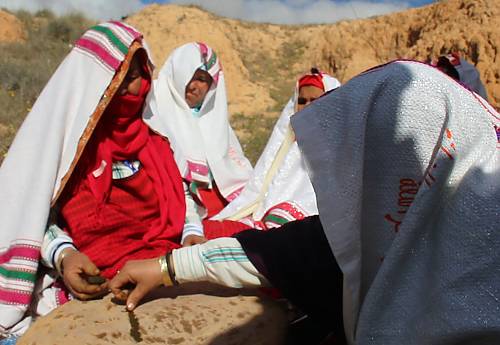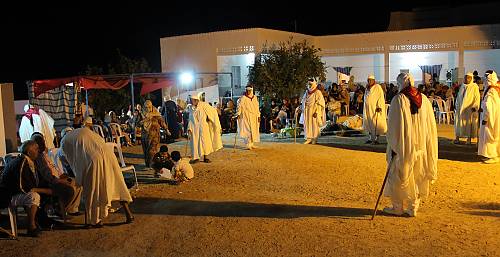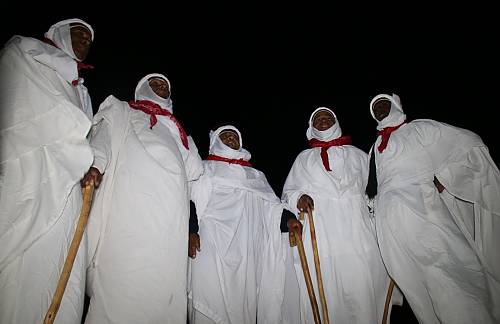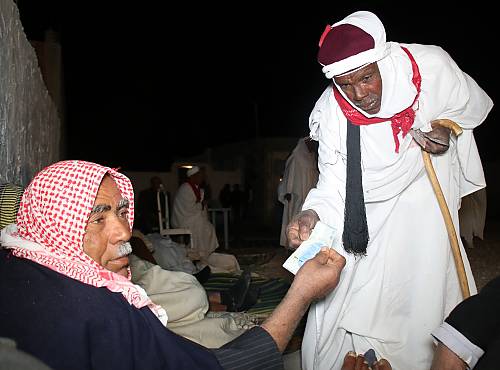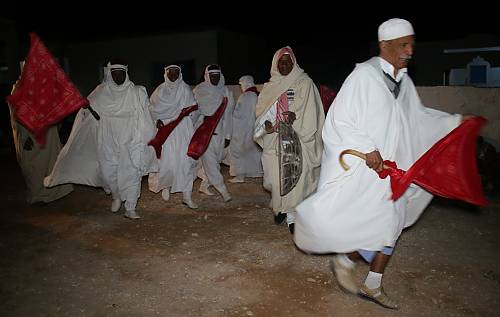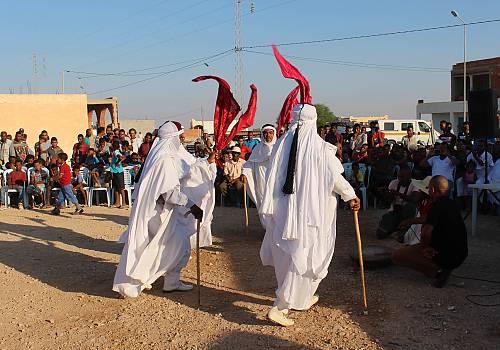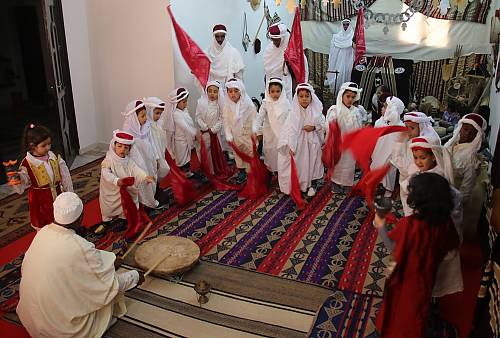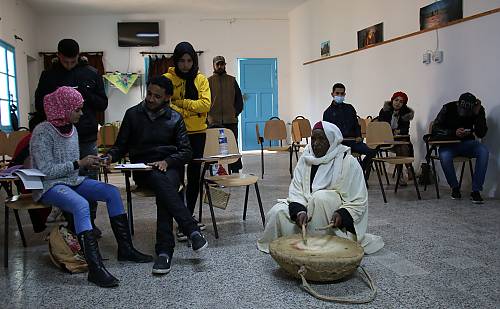Performing arts among the Twāyef of Ghbonten
Inscribed in 2024 (19.COM) on the Representative List of the Intangible Cultural Heritage of Humanity

In Tunisia, the Twāyef are troupes of poet singers affiliated with the Ghbonten tribe. The troupes perform chants or songs wearing white robes and scarlet chechias (caps). They are accompanied by the sounds of the chenna, a traditional drum. Consisting of a leader and a group of male performers, each troupe boasts a unique repertoire of songs that range from sacred to secular, blending humour and solemnity and fostering an atmosphere of camaraderie and spontaneity. The practice dates back to the mid-19th century, following the abolition of slavery in Tunisia in 1846. In this context of liberation, the community created this form of expression, which had African, Berber and Arab influences. Increasingly popular with the public, the performances have moved beyond traditional settings and are now often seen at festivals and other events. The women assist by preparing the garments and burning incense before the show. Craftspeople make the costumes, including the robes, pants, shoes and chechias. The practice is transmitted informally within families and communities, orally and through observation. It is a festive, intergenerational practice that attracts and engages children through its playful and light-hearted atmosphere. For practising communities, it is an identifying and unifying factor and a means of transmitting social norms.
